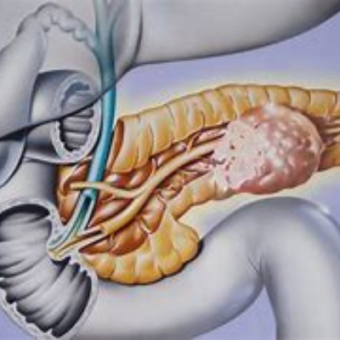The pancreas is located behind the stomach in the back of the abdomen, near the gallbladder. It contains glands that create hormones, including insulin, and enzymes.
According to the American Cancer Society (ACS), around 3% of all cancers in the United States are pancreatic cancers. In 2021, the ACS expects around 60,430 people to receive a diagnosis of pancreatic growth.
The symptoms of pancreatic cancer often do not appear until the later stages. They can also resemble the symptoms of other conditions, which can make diagnosis more challenging.
Some common symptoms include:
- abdominal or back pain
- jaundice, which is present in around 70% of people with this type of cancer
- low appetite and weight loss
- swelling of the gallbladder or liver
- blood clots, deep vein thrombosis, or pulmonary embolism
- diabetes
- pale gray or fatty stool
- nausea and vomiting
- fever and chills, in some cases
- fatigue
- diarrhea or constipation
- indigestion
- a rash due to jaundice
If the cancer spreads, new symptoms can appear elsewhere in the body.
Causes and risk factors
Scientists do not know exactly what causes pancreatic cancer, but some factors appear to increase the risk.
Genetic factors
There is some evidence to suggest that the condition may run in families.
Genetic conditions that may have links to pancreatic cancer include:
- von Hippel-Lindau syndrome
- Peutz-Jeghers syndrome
- Lynch syndrome
Sex and age
Pancreatic cancer affects more males than females. This year, the ACS expects 31,950 males and 28,480 females to receive a diagnosis.
Although pancreatic cancer can occur at any age, including during childhood, it is more likely to appear after the age of 55 years.
Exposure to environmental toxins
Exposure to chemicals used in dry cleaning or metalworking may increase the risk of pancreatic cancer.
Other medical factors
People with the following health conditions may have a higher risk of pancreatic cancer:
- cirrhosis, or scarring of the liver
- infection of the stomach with the ulcer-causing bacterium Helicobacter pylori
- diabetes
- obesity
- chronic pancreatitis, or inflammation of the pancreas
Lifestyle factors
Some lifestyle factors may also contribute to the development of pancreatic cancer, such as:
- smoking
- having excess weight
- getting low levels of exercise
- eating a diet that is high in red meat and fat and low in fruits and vegetables
- drinking a lot of alcohol over time
- consuming two or more soft drinks per day









